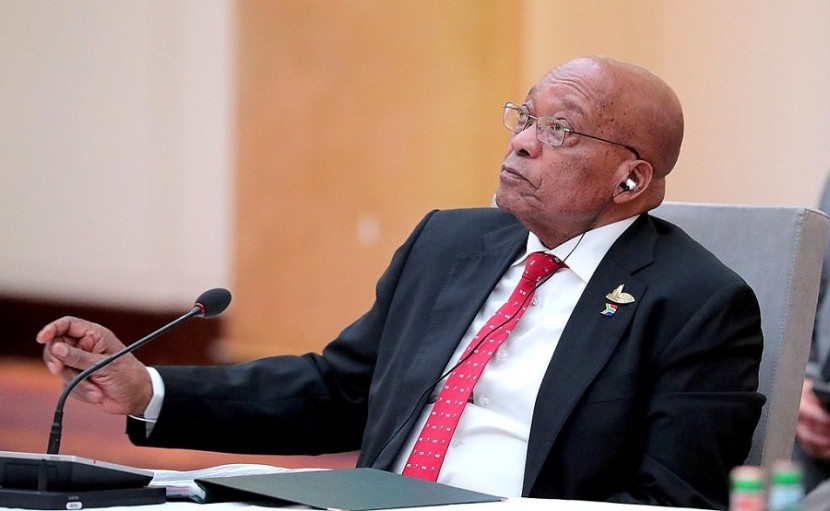
South Africa is now undergoing its most violent period since the end of apartheid in the early 1990s when the country declared complete democracy. The rioting is said to have started as a result of the Supreme Court's decision to arrest and imprison the country's former President, Jacob Zuma, bringing to close years of political instability.
As theft and violence spread across South Africa, scores of people have been slain and critical infrastructure has come to a stand still. Last week, former President Jacob Zuma handed himself in to begin a 15-month prison term for contempt of court; and the turmoil has escalated in recent days, with protestors burning shopping malls and battling with police in towns throughout the country.
Zuma bears a great deal of responsibility for the stagnation of economic growth and the dwindling ability of state institutions throughout his nine-year presidency. For most South Africans, life has gotten worse rather than better.
Nonetheless, he has been out of power since early 2018; and his replacement, President Cyril Ramaphosa, has not done enough to address those issues. The coronavirus pandemic, which has just added to the agony, hasn't helped matters, as per Bloomberg.
What fuels South Africa's riots?
While there is a dispute about whether the riots that have caused billions of dollars in damage and food shortages were planned or unplanned, the fundamental reasons are obvious. Those issues must be remedied if South Africa is to prevent a recurrence, maybe with much more catastrophic results.
Many experts believe it is, and that a "third force" supportive of the former president is at work. The government's tone has also shifted dramatically, from saying nothing in the early days of the anarchy to denouncing "economic sabotage."
Per BBC, some observers have gone so far as to say that the disturbance resembles an "attempted coup" and an "insurgency." The violence was pre-planned, according to President Cyril Ramaphosa, although he did not say who he believed was behind it.
Associate editor of Daily Maverick Ferial Haffajee wrote about a coordinated scheme of chaos created by several close associates of Jacob Zuma. Haffajee outlined the strategy from the insurrection of transport trucks in KwaZulu to the blocking of key routes from the port in Durban to Gauteng, the economic heart of South Africa; while referencing several senior sources from inside the ruling African National Congress (ANC) and intelligence services.
It's been suggested that this was done to further weaken and destabilize an already shaky economy, and therefore Ramaphosa's government. This might come from both the ruling party and the intelligence agencies of the country.
In the ANC, there are two distinct and competing factions. One is led by President Ramaphosa, who is steadily restoring state institutions and accountability following a decade of corruption and theft under Zuma's administration, according to his supporters. The RET faction, on the other hand, is favorable to the previous president and strongly loyal to him.
They were perhaps beneficiaries of this "state capture" and feel cornered by the momentum gained by the Ramaphosa faction. They want a change of guard, urgently and so stand to benefit if the current president is weakened.
Zuma- Gupta brothers relationship triggered South Africa riots
Following claims of the Gupta Brothers' ties to Jacob Zuma, the South African riots have had a far-reaching influence on the lives of the Indian diaspora. Zuma was accused of accepting bribes for government contracts, letting powerful entrepreneurs choose Ministers for his Cabinet, and other dubious charges; Republic World reported.
He was also accused of misusing government funds for personal benefit in several of the charges. Zuma, on the other hand, denies all accusations and maintains innocence. The former president and his administration disobeyed the government commission's demands to appear before the inquiry panel for several years.
"Peace and stability are directly linked to the release of President Zuma," the Jacob Zuma Foundation said in a statement presented as a veiled threat. As riots have spread across the country, the press release has simply given gasoline to the flames. South Africa is also undergoing an economic crisis, which has been exacerbated by the implementation of a third COVID-19 lockdown in June 2021, as the country prepares to face its largest COVID-19 wave.
Related Article: Thousands Join Anti-Government Protests Throughout Cuba Amid Shortages, Price Hikes
@YouTube








